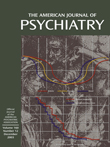Embers
The need to remove another human being from the world, body and soul, and make him uniquely theirs. For that is the hidden force within both friendship and love. Their friendship was deep and wordless, as are all the emotions that will last a lifetime. And like all great emotions, this one contained within itself both shame and a sense of guilt, for no one may isolate one of his fellows from the rest of humanity with impunity. (p. 36)Perhaps buried deep in every relationship between two people is some tiny spark of erotic attraction. Here alone in the forest, trying to make sense of life, I thought about that now and then. Friendship, of course, is quite different from the affairs of those driven by morbid impulses to satisfy themselves in some fashion with others of the same sex. The eros of friendship has no need of the body….That would be more of a disturbance than an arousal. And yet, it is eros all the same. Eros is present in love just as it is present in every mutual relationship. (pp. 108–109)And if a friend fails, because he is not a true friend, is one allowed to attack his character and his weaknesses? What is the value of a friendship in which one person loves the other for his virtue, his loyalty, his steadfastness? What is the value of a love that expects loyalty? Isn’t it our duty to accept the faithless friend as we do the faithful one who sacrifices himself? Is disinterest not the essence of every human relationship? That the more we give, the less we expect? And if a man gives someone his trust through all the years of his youth and stands ready to make sacrifices for him in manhood because of that blind, unconditional devotion, which is the highest thing any one person can offer another, only then to witness the faithlessness and base behavior of his friend, is he permitted to rise up in protest and demand vengeance? And if he does rise up and demand vengeance, having been deceived and abandoned, what does that say about the validity of his friendship in the first place? (pp. 110–111)
Life becomes bearable only when one has come to terms with who one is, both in one’s own eyes and in the eyes of the world. We all of us must come to terms with what and who we are, and recognize that this wisdom is not going to earn us any praise, that life is not going to pin a medal on us for recognizing and enduring our own vanity or egoism or baldness or our pot-belly. No, the secret is that there’s no reward and we have to endure our characters and our natures as best we can, because no amount of experience or insight is going to rectify our deficiencies, our self-regard, or our cupidity. We have to learn that our desires do not find any real echo in the world. We have to accept that the people we love do not love us, or not in the way we hope. We have to accept betrayal and disloyalty, and, hardest of all, that someone is finer than we are in character or intelligence. (p. 135)
Things do not simply happen to one.…One can also shape what happens to one. One shapes it, summons it, takes hold of the inevitable. It’s the human condition. A man acts, even when he knows from the very onset that his act will be fatal. He and his fate are inseparable, they have a pact with each other that molds them both. It is not true that fate slips silently into our lives. It steps in through the door that we have opened, and we invite it to enter. No one is strong enough or cunning enough to avert by word or deed the misfortune that is rooted in the iron laws of his character and his life. (p. 170)
Information & Authors
Information
Published In
History
Authors
Metrics & Citations
Metrics
Citations
Export Citations
If you have the appropriate software installed, you can download article citation data to the citation manager of your choice. Simply select your manager software from the list below and click Download.
For more information or tips please see 'Downloading to a citation manager' in the Help menu.
View Options
View options
PDF/EPUB
View PDF/EPUBGet Access
Login options
Already a subscriber? Access your subscription through your login credentials or your institution for full access to this article.
Personal login Institutional Login Open Athens loginNot a subscriber?
PsychiatryOnline subscription options offer access to the DSM-5-TR® library, books, journals, CME, and patient resources. This all-in-one virtual library provides psychiatrists and mental health professionals with key resources for diagnosis, treatment, research, and professional development.
Need more help? PsychiatryOnline Customer Service may be reached by emailing [email protected] or by calling 800-368-5777 (in the U.S.) or 703-907-7322 (outside the U.S.).

